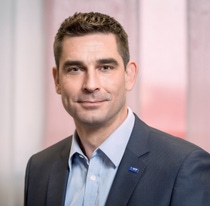Media
BASF is accelerating the implementation of its CO2 reduction targets
- New project organization “Net Zero Accelerator” with reporting line to the CEO led by Dr. Lars Kissau, President
- Steering of cross-company activities in the areas of low-CO2 technologies, circular economy and renewable energies
- Launch and acceleration of new emission reduction projects
With a new project organization, BASF is bundling and accelerating its extensive cross-company activities to reduce its CO2 emissions by 25 percent by 2030 compared with 2018 and become climate neutral by 2050. The unit, called “Net Zero Accelerator”, focuses on implementing and accelerating projects relating to low-CO2 production technologies, circular economy and renewable energies. “With the new project organization, we are continuing to accelerate and create more powerful structures within BASF to achieve our ambitious goals,” said Dr. Martin Brudermüller, Chairman of the Board of Executive Directors of BASF SE. “This further step demonstrates the determination to drive forward our transformation to a climate-neutral company.”
The Net Zero Accelerator unit will be led by Dr. Lars Kissau (48) as President, reporting directly to the Chairman of the Board of Executive Directors. Under Kissau’s leadership, existing and new projects to achieve the CO2 reduction targets will be launched and driven forward at corporate level worldwide in the future. The aim is to move the projects into the implementation phase over the next few years. By pooling expertise around renewable energies, alternative raw materials and CO2 reduction technologies, BASF will increase the speed of implementation and achieve scaling effects more quickly, thus making an important contribution to climate protection. In parallel, the operating divisions will continue to work on divisional projects to implement BASF’s ambitious CO2 reduction targets.
Ongoing cross-company projects managed by the new unit include BASF’s activities in the field of circular economy such as ChemCyclingTM or CO2-free technologies such as methane pyrolysis. Renewable energies are another field of activity. BASF has initiated various projects in this area and signed specific agreements in recent months. Examples include a contract with Vattenfall to acquire a 49.5 percent stake in the Hollandse Kust Zuid wind farm with a total capacity of 1.5 gigawatts and a 25-year electricity supply contract to purchase 186 megawatts of capacity from Ørsted’s planned Borkum Riffgrund 3 offshore wind farm in the German North Sea.
The new project organization, based in Ludwigshafen, Germany, will start on January 1, 2022, initially with around 80 employees.
More about BASF and sustainability on the Internet at Sustainability (basf.com).
Receive up-to-date news releases from BASF via push notification on your smartphone. Register for our news service at basf.com/pushnews.
About BASF
At BASF, we create chemistry for a sustainable future. We combine economic success with environmental protection and social responsibility. More than 110,000 employees in the BASF Group contribute to the success of our customers in nearly all sectors and almost every country in the world. Our portfolio is organized into six segments: Chemicals, Materials, Industrial Solutions, Surface Technologies, Nutrition & Care and Agricultural Solutions. BASF generated sales of €59 billion in 2020. BASF shares are traded on the stock exchange in Frankfurt (BAS) and as American Depositary Receipts (BASFY) in the U.S. Further information at www.basf.com.
P-21-384




